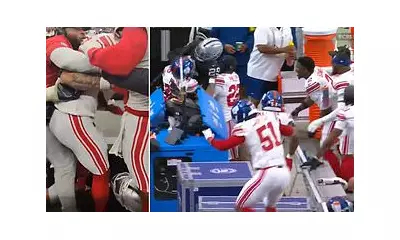
Manchester City's goal-scoring phenomenon Erling Haaland has sent shockwaves through the football community with a subtle but significant change to his iconic shirt.
The Norwegian striker, known for his devastating finishing and record-breaking performances, has officially dropped the umlaut from his surname on all Manchester City merchandise for the upcoming season. What was previously displayed as "Håland" will now simply read "Haaland" across all official kits and products.
Why The Sudden Change?
This alteration isn't merely a stylistic choice but appears to be a strategic commercial decision. Club insiders suggest the move aims to standardise the spelling for global marketing purposes, making merchandise more accessible and recognisable worldwide.
The absence of the special character eliminates potential complications for international fans seeking to purchase personalised items, particularly through online stores and digital platforms that might not support special characters consistently.
Fan Reaction Divided
The revelation has sparked passionate debate among the City faithful and football enthusiasts alike. While some supporters understand the practical reasoning behind the decision, others view it as a loss of cultural identity.
Traditionalists argue that removing the umlaut disregards the proper Norwegian spelling and diminishes the authenticity of Haaland's heritage. Many have taken to social media to express their disappointment, calling it an unnecessary commercialisation.
Practical-minded fans counter that the change simplifies matters for everyone involved—from merchandise production to fan purchases—and makes the brand more globally consistent.
Commercial Implications
Haaland's shirt remains one of the Premier League's top sellers, and this standardization is likely to streamline manufacturing and reduce errors in customisation. The club anticipates smoother operations for both physical and online retail channels, potentially boosting sales in markets where special characters create technical challenges.
This isn't the first time a player's name has been altered for commercial reasons, but it certainly ranks among the most noticeable changes in recent Premier League history.
As the new season approaches, all eyes will be on how quickly fans adapt to the revised spelling—and whether the man himself continues to use the umlaut in his personal branding off the pitch.





